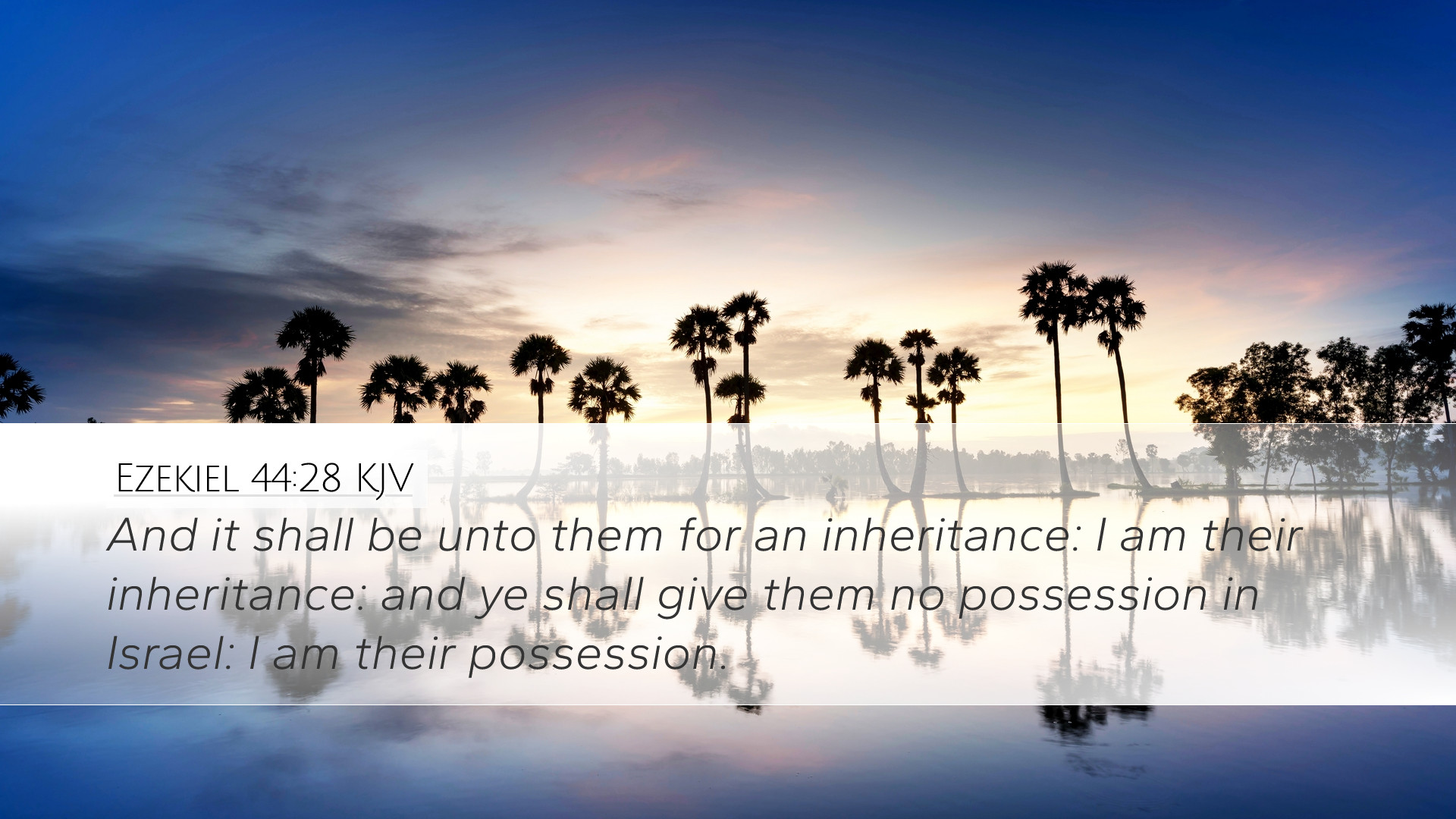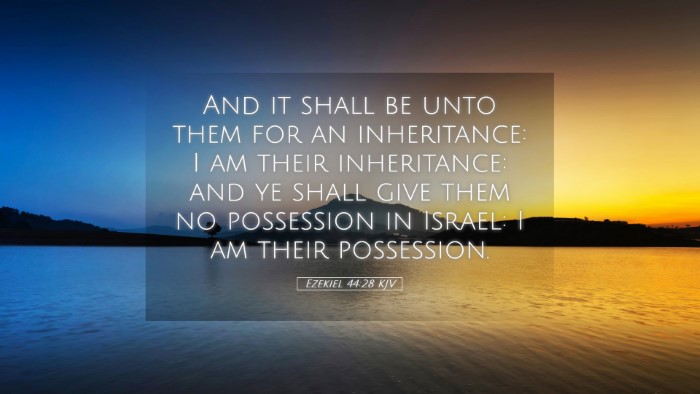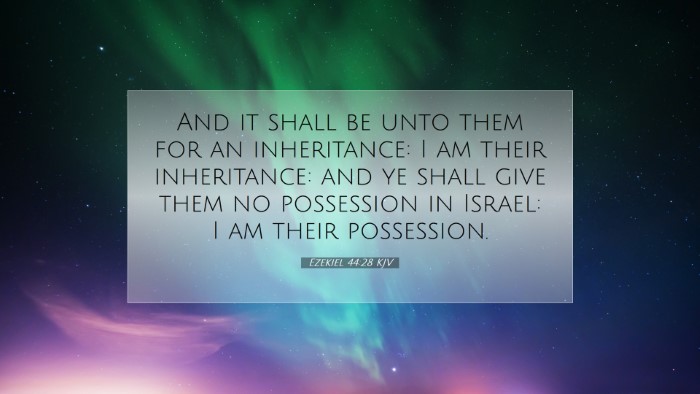Commentary on Ezekiel 44:28
Ezekiel 44:28 states: “And it shall be unto them for an inheritance: I am their inheritance: and ye shall give them no possession in Israel: I am their possession.” This verse carries profound implications for understanding the nature of inheritance and the role of the Levitical priesthood in Israel. The following commentary draws insights from various public domain sources, notably those of Matthew Henry, Albert Barnes, and Adam Clarke.
Contextual Background
The verse comes from a section in Ezekiel that addresses the restoration of the temple and the re-establishment of proper worship in Israel post-exile. The Levitical priests, who had been set apart for service in the temple, are emphasized significantly in this passage. Their inheritance, which is YHWH Himself, signifies both their unique position and responsibilities in the covenant community.
Meaning and Implications
Theological Significance
Matthew Henry emphasizes that the most valuable inheritance for the Levites was not land or wealth but God Himself. This theological perspective underscores the principle that spiritual inheritance surpasses material possessions. The true essence of wealth for the Levites was in their relationship with God (Henry).
The Role of the Priesthood
Albert Barnes elaborates on the significance of the priesthood in this context, noting that the priests were to serve in a mediatorial role between God and the people. By having no land inheritance, they were fully dedicated to serving the Lord and the community, reflecting their ultimate dependence on God’s provision (Barnes). This arrangement illustrates a model of trust in divine provision and spiritual fidelity.
Contrast with Secular Inheritance
Adam Clarke points out the contrast between the inheritance of the Levites and that of the other tribes of Israel. While other tribes received land, the Levites' inheritance was uniquely spiritual. This delineation serves to illustrate the divine ordering of priorities, prioritizing spiritual matters above physical sustenance (Clarke). The absence of material possessions did not equate to poverty; rather, it defined a rich, God-centered life.
Practical Applications
- Spiritual Dependency: Just as the Levites were to depend on God for their sustenance, modern believers are called to trust in God's provision, recognizing that spiritual wealth is of utmost importance.
- Priority of God’s Presence: The emphasis on God being their inheritance encourages pastors and leaders to focus on fostering a relationship with God in their ministries over the pursuit of physical gains.
- Role of Service: The priestly model demonstrated in Ezekiel reminds congregants that service to God and others should take precedence over personal ambition.
Conclusion
Ezekiel 44:28 encapsulates a rich theological truth regarding inheritance, emphasizing that knowing and serving God is of paramount importance. As we reflect on this verse, pastors, theologians, and students of the Word are invited to consider the implications of spiritual inheritance in their own lives and communities, revisiting the heart of their ministries in the light of God's ultimate call to His people.


